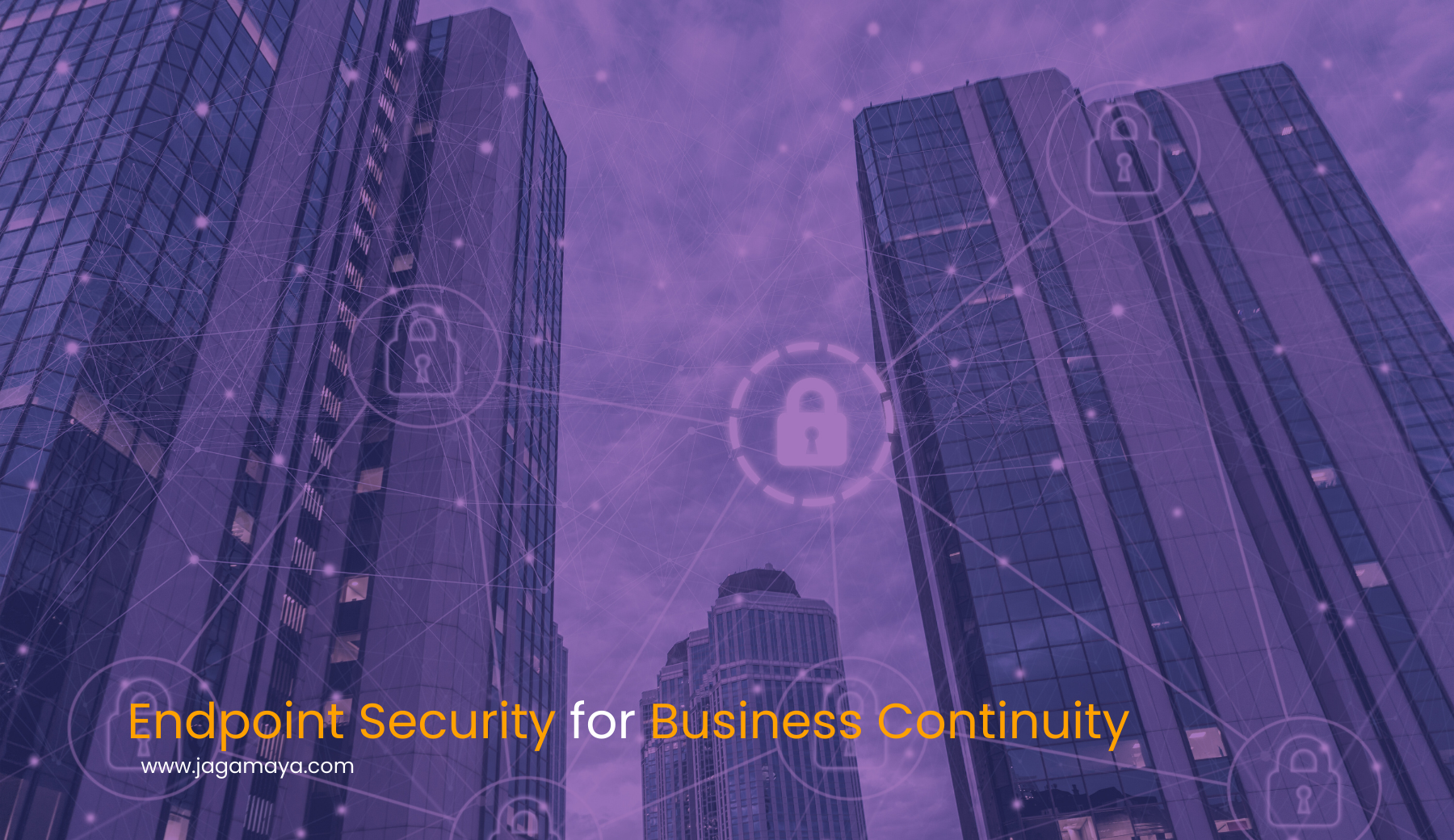In today’s increasingly digital and interconnected world, businesses face a growing array of cyber threats that can disrupt operations, compromise sensitive data, and damage reputation. Ensuring business continuity in this environment requires a robust and strategic approach to cybersecurity, with endpoint security playing a critical role.
Understanding Endpoint Security
Endpoint security refers to the protection of end-user devices such as desktops, laptops, smartphones, tablets, and servers against cyber threats. These devices serve as access points to enterprise networks and are often targeted by attackers as vulnerable entryways. Effective endpoint security solutions protect devices from malware, phishing, ransomware, and unauthorized access, ensuring that all endpoints remain secure and operational.
According to a report from Cybersecurity & Infrastructure Security Agency (CISA), endpoints represent a significant attack surface that organizations must secure to maintain operational resilience. (Source: CISA)
Why Endpoint Security Is Vital for Business Continuity
Business continuity is the ability of an organization to maintain essential functions during and after a disaster has occurred. Cyber attacks on endpoints can lead to system downtime, loss of critical data, and disruption of services, all of which threaten business continuity.
Implementing strong endpoint security measures helps:
- Prevent Data Breaches: Protect sensitive company and customer information from being stolen.
- Maintain System Uptime: Ensure that devices and applications are available when needed.
- Reduce Incident Response Costs: Mitigate financial and operational impacts by preventing successful attacks.
- Support Compliance: Help meet regulatory requirements such as GDPR, HIPAA, and Indonesia’s PP 71/2019 on data protection and localization (Understanding Indonesia’s PP 71/2019).
Key Components of Effective Endpoint Security
A comprehensive endpoint security strategy should include:
1. Endpoint Detection and Response (EDR): EDR solutions provide continuous monitoring and response capabilities, allowing organizations to detect, investigate, and remediate threats in real time.
2. Anti-Malware and Antivirus Software: Traditional antivirus tools are essential for detecting known threats, while modern anti-malware solutions offer broader protection against evolving cyber attacks.
3. Encryption: Encrypting data stored on endpoints ensures that even if a device is lost or stolen, the information remains protected.
4. Device Management Policies: Organizations should enforce security policies for all devices accessing corporate resources, including mandatory software updates, strong passwords, and device lockdowns for non-compliance.
5. User Awareness Training: Human error remains a major cybersecurity risk. Regular training helps employees recognize and avoid phishing attempts, suspicious downloads, and unsafe practices.
For more information on building secure systems and best practices, see our blog on AI-Driven SOC: The Next Generation of Security Operations.
Common Threats Targeting Endpoints
- Ransomware: Attackers encrypt organizational data and demand payment for its release.
- Phishing: Cybercriminals use deceptive emails or messages to trick users into revealing login credentials or downloading malware.
- Zero-Day Exploits: Attackers exploit unknown vulnerabilities before developers can patch them.
- Insider Threats: Employees, contractors, or other trusted individuals may intentionally or unintentionally compromise endpoint security.
Best Practices for Strengthening Endpoint Security
- Adopt a Zero Trust Security Model: Never trust, always verify every request for access to resources.
- Regularly Update Software and Patches: Ensure that all systems are up-to-date to eliminate known vulnerabilities.
- Implement Multi-Factor Authentication (MFA): Add an extra layer of security beyond just passwords.
- Segment Networks: Limit the spread of potential breaches by isolating different network zones.
- Backup Critical Data: Regularly backup systems and data to recover quickly in the event of an incident.
The Future of Endpoint Security
As remote and hybrid work models become standard, and as IoT devices multiply, endpoint security must evolve. Solutions driven by artificial intelligence (AI) and machine learning (ML) offer promising advances by proactively identifying anomalies and stopping threats before they escalate.
Organizations should also prepare for compliance challenges, including evolving global regulations on data protection and privacy. To navigate this landscape, see our blog on Understanding Data Privacy Laws & Compliance in a Global Economy.
Conclusion
Endpoint security is no longer optional; it is a fundamental pillar of business continuity. By investing in strong endpoint defenses, businesses protect not only their operational stability but also their reputation, financial health, and customer trust.
At Jagamaya, we help organizations fortify their endpoints through comprehensive cybersecurity strategies tailored to today’s evolving threat landscape. Reach out to us to learn how we can help ensure your business remains resilient, secure, and future-ready.
Stay secure. Stay resilient. Build with Jagamaya.


Leave a Reply